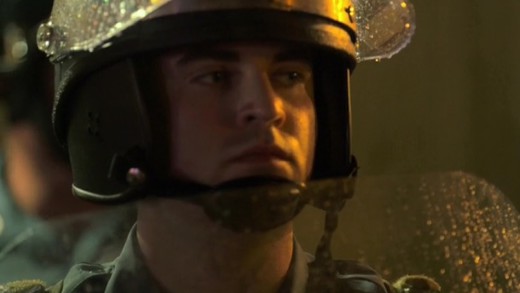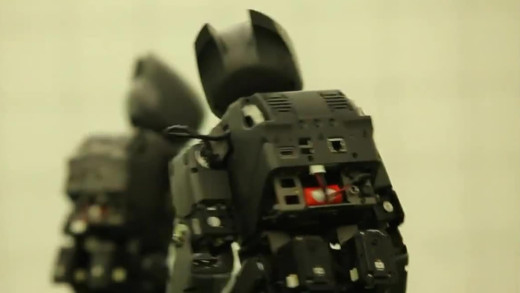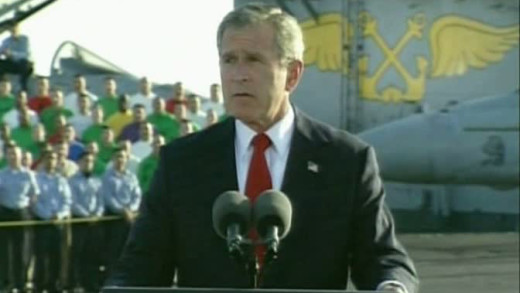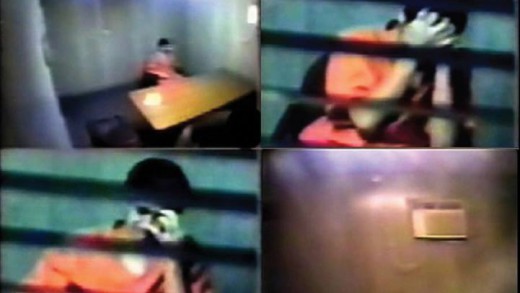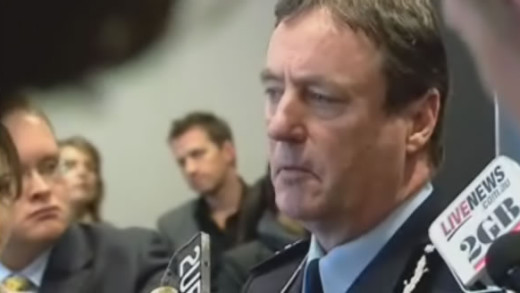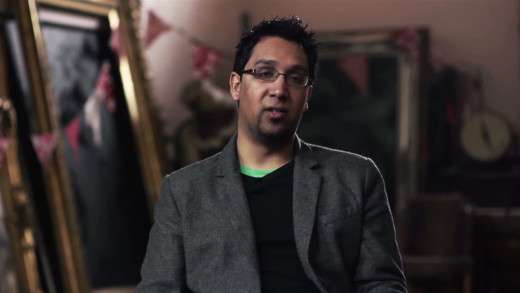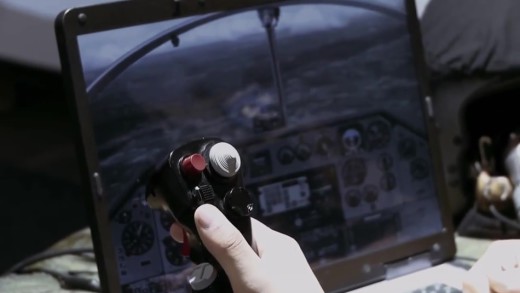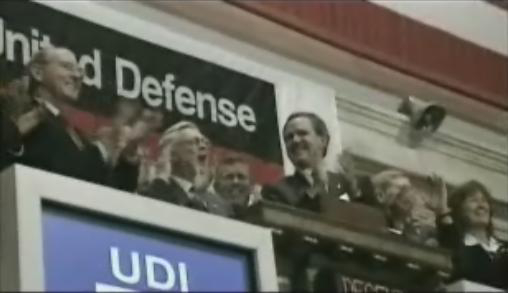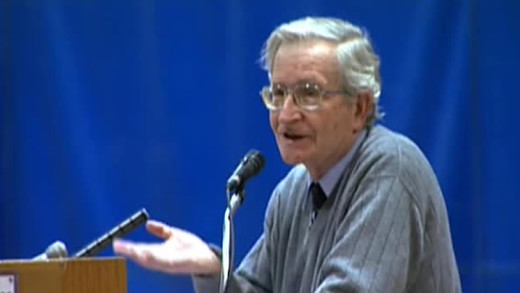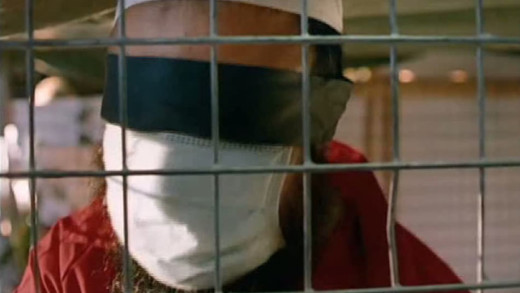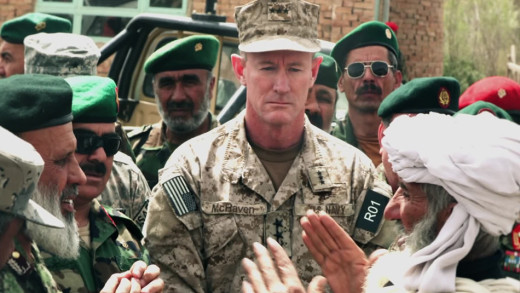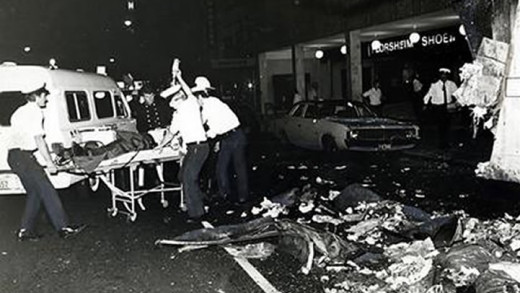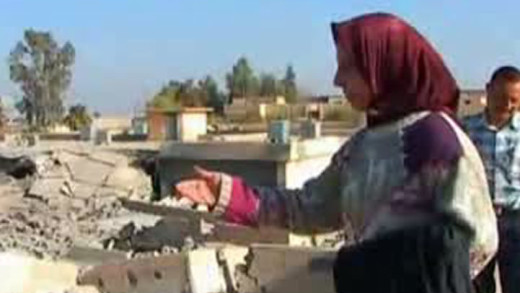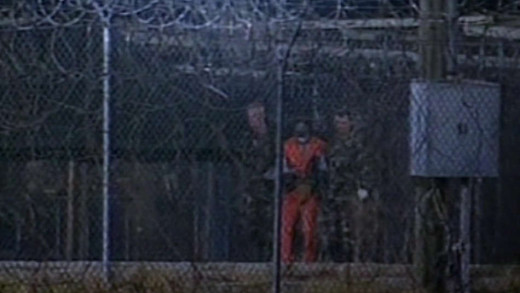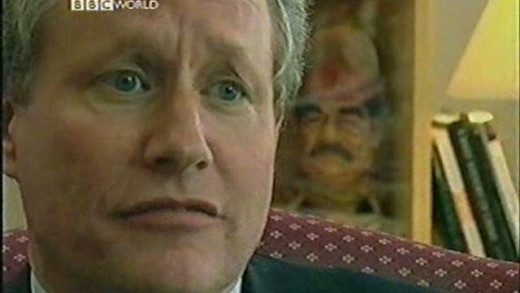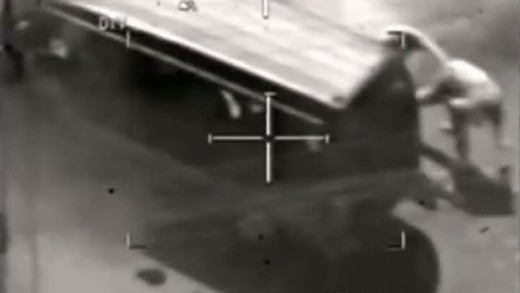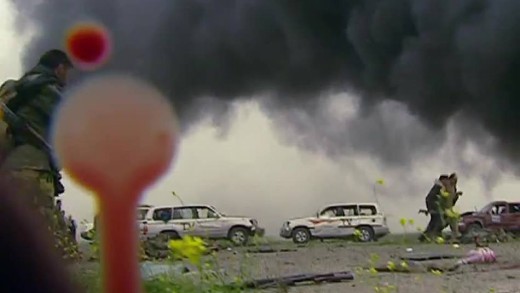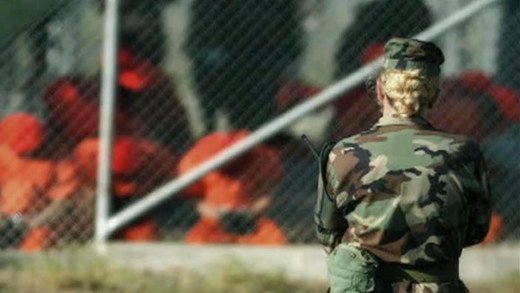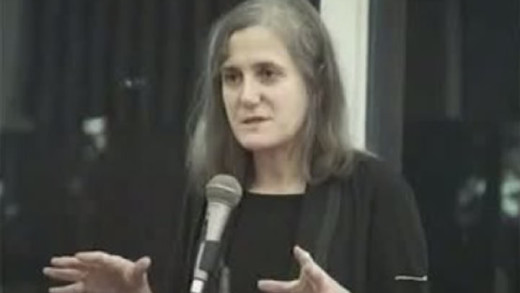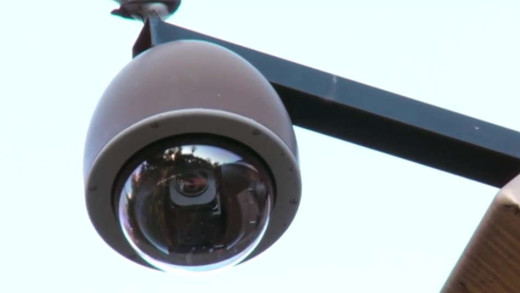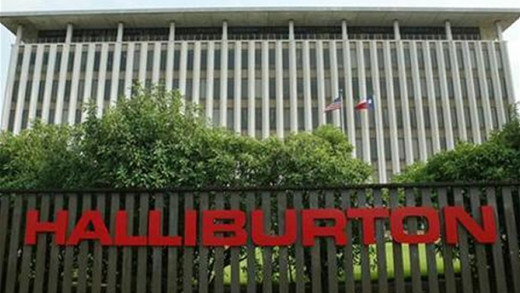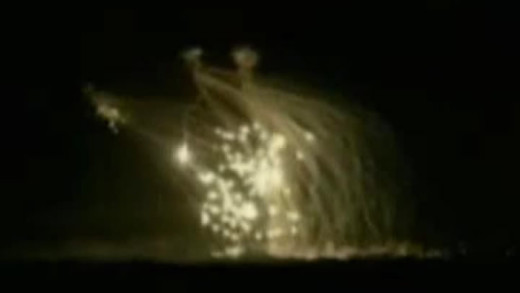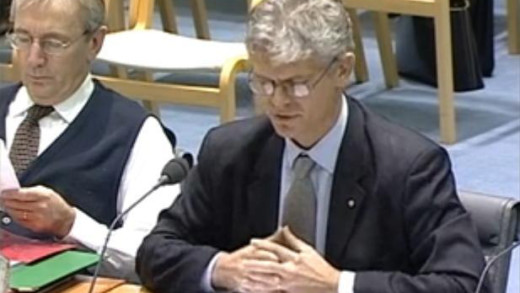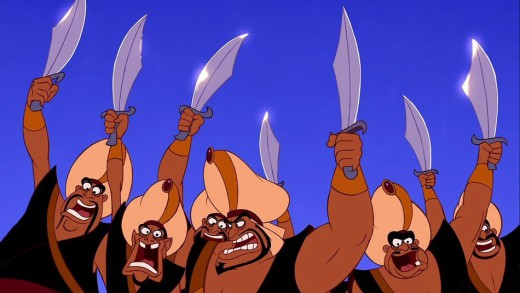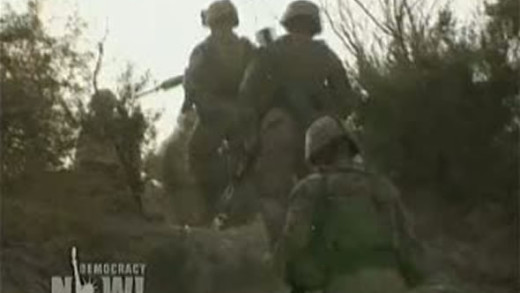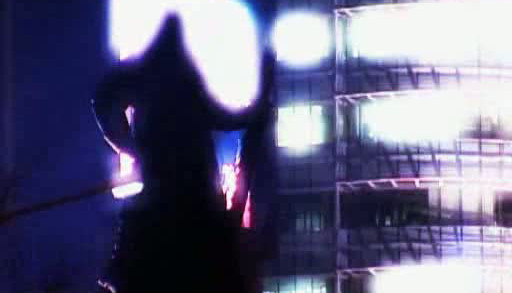Do Not Resist documents, from the perspective of the police, their view of the social unrest following the shooting and killing of Michael Brown by police in Ferguson, 2014, against a backdrop of the routine and escalating use of military tactics and high-powered weaponry by local police forces throughout the United States in the past two decades. Military equipment deployed throughout the Middle East returns home to be used against the citizenry. Local police recruitment and training is awash in military commandments backed by views of escalating 'righteous' violence and sadism. Meanwhile curfews are imposed, along with frivolous drug raids and incessant racial profiling. The voices of concerned citizens ignored. What is the cultural and technological trajectory here?
The Trap
If one steps back and looks at what freedom actually means in the West today, it's a strange and limited kind of freedom. The United States and its empire self-describe fighting the Cold War for "individual freedom," yet it is still something that the leaders of our so-called democracies continually promise to give us. Abroad, in Iraq and Afghanistan, the attempt to force "freedom" on to other people has led to more than just bloody mayhem, and this, in turn, has helped inspire terrorist attacks in Britain and elsewhere. In response, the government has dismantled long-standing laws that were designed to protect individual freedom and civil liberties.
Over the past decade, the United States military has shifted the way it fights its wars, deploying more technological systems in the battlefield than human forces. Today there are more than 7,000 drones and 12,000 ground robots in use by all branches of the military. These systems mean less deaths for US troops, but increased killings and precision elsewhere for the United States war machine. With lethal drone strikes being carried out in secret by the CIA and occurring outside of officially declared war zones such as Pakistan, Yemen and Somalia, the secret use of robots and drones in this way evokes serious questions about the operations of the United States and what this means for the rest of the world as more and more autonomy is developed for these technologies.
Why have a real election when you can just buy the result? In Bush Family Fortunes, Greg Palast examines various aspects of the Presidency of George W. Bush, including the very controversial 2000 US Presidential 'election' and of course, the invasion of Iraq. What are the Bush family connections?
This film provides some insights into the plight of Omar Ahmed Khadr, a Canadian citizen, who was fifteen years old when he was taken by United States forces in Afghanistan in 2002 to be interrogated, tortured, and sent to Guantánamo Bay. Based on seven hours of CCTV footage recently conceded and declassified by Canadian courts, You Don't Like The Truth offers a dark, yet officially-sanctioned view into the sadistic world of today's intelligence agencies and the secret operations in the War-of-Terror.
The Australian Federal Police--the glamour police force that was set-up after the Sydney Hilton Hotel Bombing in 1978--has enjoyed consistent showers of praise by politicians and the public ever since it's inception. However, the once-lionised AFP is now being ridiculed for bungling, excessive secrecy and collusion after the catastrophic failings of the "terrorism case" against Dr Mohammed Haneef. Good Cop, Bad Cop reveals how the Haneef case is a symptom of the deep cultural problems that beset the AFP...
The Crisis of Civilization draws on archive footage and essentially monologue by author Nafeez Mosaddeq Ahmed to detail how global problems like environmental collapse, financial crisis, peak energy, terrorism and food shortages are all symptoms of a single, failed global system...
Drone
In the wake of the September 11th attacks, amongst the ravaging of war, the United States has been secretly deploying drones to carry out assassinations throughout the Middle East. The drones are increasingly piloted by the likes of young computer gamers groomed by screen culture and computer games of war, where in many cases, the Pentagon is directly involved in the creation of such games as recruitment tools, actively working to lure young people proficient with technology into the new era of the military-industrial-complex. Drone unravels this complex phenomenon while travelling to places such as Waziristan, where innocent civilians, including children and rescue workers are routinely secretly killed, where families and communities ravaged by the drone strikes search for understanding, accountability and adjustment to the daily horrors. The film also takes a look at the young people sitting behind the screens of the new war machines, half a world away, that actually pull the trigger, asking what kind of world is being built in the rise of seemingly endless and lucrative war driven by technological escalation.
The Carlyle Group is one of the largest investment banks in the world. Based in Washington, it has accumulated its wealth mainly by investments in defence--a lucrative market in the continued tradition of American war, imperialism and militarism. A strange coincidence? Their list of private investors include George Soros, the Saudi Royal Family and the Bin Laden Family. How does the Carlyle Group really operate and who are the people behind it?
Rebel Without A Pause follows renowned linguist and activist, Noam Chomsky through discussions and talks on various world events such as the invasion of Iraq, the September 11th attacks and the War on Terror. Chomsky also weaves in accounts of media manipulation, social control, and discusses the workings of the politics of fear. The film combines footage from large forums to small interactive discussions on these topics, as well as reflections from others...
In the wake of the attacks of September 11th 2001, the United States opened a prison camp in Guantánamo Bay, Cuba. The hundreds of prisoners detained there are not afforded prisoners of war status according to the Geneva Convention, they are labelled "unlawful combatants" and are held indefinitely and tortured with no right to a lawyer or a trial. Gitmo -- The New Rules Of War cuts through the official political rhetoric surrounding Guantánamo to expose what really goes on at the United States central gulag in the 'war on terror'.
Dirty Wars follows investigative reporter Jeremy Scahill into the hidden world of the United States' covert wars and assassination programmes—from Afghanistan to Yemen, Somalia, and beyond. What begins as a relatively commonplace report on the cover-up of a murderous US night raid in a remote corner of Afghanistan, quickly turns into a global investigation of the secretive and powerful Joint Special Operations Command (JSOC)—a top secret arm of the Military-Industrial-Intelligence Complex. As Scahill digs deeper into the activities of JSOC, he is compelled to report on the growing chilling underworld of covert operations carried out across the globe at the behest of the United States government: Targeted killings of American citizens; secret drone strikes; outsourcing American kill lists to warlords, private corporations and paramilitaries. The list goes on. Dirty Wars is a sobering investigation and personal journey into the most important human rights story of our time.
In 1978, Australia was shocked by the explosion of a massive bomb placed in a rubbish bin outside the Sydney Hilton Hotel in NSW. The perpetrators were never found. However, evidence that the Australian security and intelligence forces may have been responsible resulted in the NSW State Parliament unanimously calling for an inquiry in 1991 and then again in 1995. The Federal Government vetoed any inquiry. No investigation was held. The government then set-up the Australian Federal Police and increased support for "anti-terrorist measures"...
The United States heralded many grandiose promises of freedom and equal rights as they invaded Iraq. But still years on from the invasion, the reality of everyday life for women inside Iraq is of course a different story. To make this film, two Iraqi women risk their lives to spend three months travelling all over the country with a camera to record the lives and experiences of women they meet. Iraq -- The Women's Story provides a compelling account of a life inside Iraq that is never seen on news bulletins...
In December 2001, David Hicks, an Australian citizen, was captured in Afghanistan and handed over to the United States military, where he was moved to Guantanamo Bay for "interrogation." He has been held there ever since, not charged with any crime. Despite this, the United States labelled him an "unlawful combatant," a legal fiction concocted by the United States in order for them to torture Hicks and many other people like him, in the name of fighting the so-called "War on Terror." Many people, including Hicks, were kept in detention without charge for many years, denied a fair trial, and denied access to the United States' legal system. So how did a 26 year old former-stockman from Adelaide end up in the United States' torture chamber? Terry Hicks, David's father, sets out to answer this question, as he traces his son's journey from Adelaide to Japan to Kosovo, through Pakistan and Afghanistan, where he is captured in Taliban country.
They brought us war in Iraq, the promotion of "American global leadership," pre-emptive strikes; the "spreading of Democracy." This is the Project for the New American Century. But what do the hawks in Washington have in store for the world now? The War Party investigates this group of beurocrats responsible for the Project for the New American Century, called the neo-conservatives. This interconnected, dispersed group are running the White House in concert of the Bush years and family dynasty. Is it surprising how little has changed?
Counter-Intelligence is a 5 part series that explores in-depth, the vast, sprawling and secret National Security State that operates throughout the United States--and indeed the world. The series examines the foundations of the Military-Industrial-Intelligence Complex, charting through to the myriad consequences in today's world where secret intelligence organisations continue to hijack governments, manipulate elections and commit heinous crimes against humanity--all under the cloak of "National Security". In the wake of the continued revelations of the NSA PRISM program, this series is now more important than ever to provide a solid historical context to the workings of the rapacious and ever-expanding National Security State...
Initially, the Americans claimed that they were not recording casualty figures. George Bush stated that America would do its "utmost to avoid civilian casualties". But now, details of the US Military themselves recording over 109,000 deaths have been released by Wikileaks -- over 66,000 civilian deaths; 176,000 civilians and others wounded. Iraq's Secret War Files reveals the true scale of civilian casualties, and examines evidence that after the "scandal" of Abu Ghraib, American soldiers continued to torture prisoners; and that US forces did not intervene in the torture and murder of detainees by Iraqi security services...
Bitter Lake
Bitter Lake explores how the realpolitik of the West has converged on a mirror image of itself throughout the Middle-East over the past decades, and how the story of this has become so obfuscating and simplified that we, the public, have been left in a bewildered and confused state. The narrative traverses the United States, Britain, Russia and Saudi Arabia—but the country at the centre of reflection is Afghanistan. Because Afghanistan is the place that has confronted political figureheads across the West with the truth of their delusions—that they cannot understand what is going on any longer inside the systems they have built which do not account for the real world. Bitter Lake sets out to reveal the forces that over the past thirty years, rose up and commandeered those political systems into subservience, to which, as we see now, the highly destructive stories told by those in power, are inexorably bound to. The stories are not only half-truths, but they have monumental consequences in the real world.
The discrepancies between the "War on Terror" and the facts on the ground in Afghanistan and Iraq are many. In 2001, as the bombs began to drop, George W. Bush promised Afghanistan, "the generosity of America and its allies." Now, the familiar old warlords are retaining their power, religious fundamentalism is expanding its grip and military 'skirmishes' continue routinely. In "liberated" Afghanistan, America has its military base and pipeline access, while the people have the warlords who are, as one woman says in the film, "in many ways worse than the Taliban."
Amy Goodman from Democracy Now! speaks about the mainstream media's coverage of US interventions around the world and demonstrates the link between corporate media and government, and how this plays a major part in selling war at home and abroad...
For the past 15 years, the misnomer "War on Terror" has been used by the United States to justify everything from mass surveillance and spying on its own citizens, to the use of secret drone strikes to kill people without trial or sometimes even evidence. Governments have always applied surveillance to those they consider a political threat, but the scale of the clandestine PRISM programme, which collects the data of billions of innocent people all across the globe, is unprecedented. Likewise is the call for the journalists who published the documents revealing the PRISM programme to be prosecuted. In the wake of relations about sustained, systematic abuses of power, it is apparent that in many areas, the United States operates on spurious interpretations of law, often explained in confidential memos, hidden from the public. Other times, the law is disregarded entirely. So what does this mean for resistance? How can citizen rights be reconciled with a rogue state security apparatus?
The untold history of The Project for the New American Century is no more. This film exposes how every major war in US history was based on a complete fraud with video of insiders themselves admitting it. This documentary shows how the first film theatres in the US were used over a hundred years ago to broadcast propaganda to rile the American people into the Spanish-American War; the white papers of the oil company Unocal which called for the creation of a pipeline through Afghanistan and how their exact needs were fulfilled through the US invasion of Afghanistan; how Halliburton under their "cost plus" exclusive contract with the US Government went on a mad dash spending spree akin to something out of the movie Brewster's Millions...
This film comprehensively documents the use of chemical weapons--particularly the use of incendiary bombs--along with hordes of other horrific indiscriminate violence against civilians and children by the United States military in the city of Fallujah during the invasion of Iraq in November 2004. The cases portrayed involve the use of white phosphorus and other substances similar to napalm, such as Mark-77, which constitute clearly defined war crimes involving chemical weapons. Interviews with ex-military personnel involved in the Fallujah offensive back up the case for the use of such weapons by the United States, while reporters stationed in Iraq discuss the government's attempts to suppress the news by covert means.
Outsourcing Torture documents the account of Mamdouh Habib, an Australian Muslim arrested in Afghanistan during a "general round up" where he was sent to Egypt to be tortured. Three years after his arrest, Mahdouh Habib is still imprisoned in Guantanamo, still not having been charged with any crime...
Reel Bad Arabs: How Hollywood Vilifies a People analyses how the storytelling of the West has crafted and perpetuated a false stereotypical image of Arabs and Arab culture since the early days of American silent cinema, up to the present with the biggest Hollywood blockbusters. The film shows how the persistence of these stories over time has served to powerfully naturalise and perpetuate prejudice toward Arabs, Arab culture and the Middle East in general, and how this in turn also serves to reinforce the harmful narratives of dominant culture which dehumanise Arabs as a people and negate the visceral political acts carried out against them by the West for decades. By inspiring critical thinking about the social, political, and basic human consequences of leaving these caricatures unexamined, Reel Bad Arabs challenges viewers to recognise the urgent need for counter-narratives to do justice to the diversity and humanity of Arab people, to share the truth about the stories of their lives and their history.
Welcome to the wartime contracting bazaar in Afghanistan. It is a virtual carnival of characters with shady connections—former CIA officials and ex-military officers joining hands with former Taliban and mujahedeen to collect US government funds in the name of the war effort. US military's contractors pay suspected insurgents to protect American supply routes. It is an accepted fact of the military logistics in Afghanistan that the US government funds the very forces American troops are fighting—a deadly irony...
From the front-lines of conflicts in Mexico, Argentina, South Africa, Palestine, Korea, and the North; from Seattle to Genova and the "War on Terror" in New York, Afghanistan, and Iraq, The Fourth World War documents the stories of women and men all around the world who resist being annihilated in this war. Centred around economics and systems such as NAFTA, GATT, the G20, APEC and others, this is a war which plays along with the spread of rapacious globalisation, a feat that has pervasive consequences in the real world...
